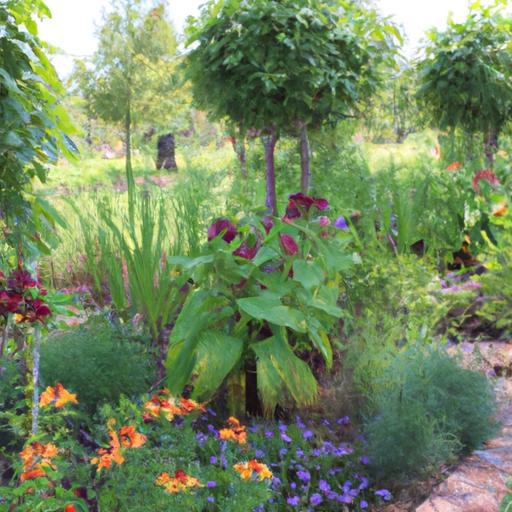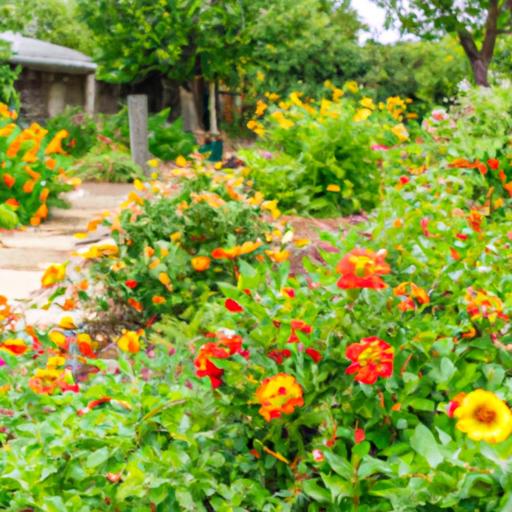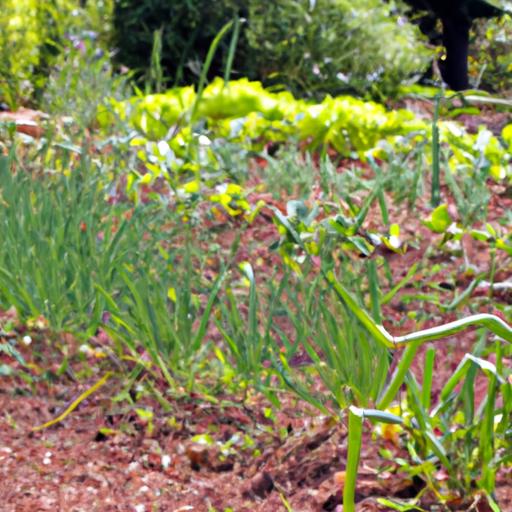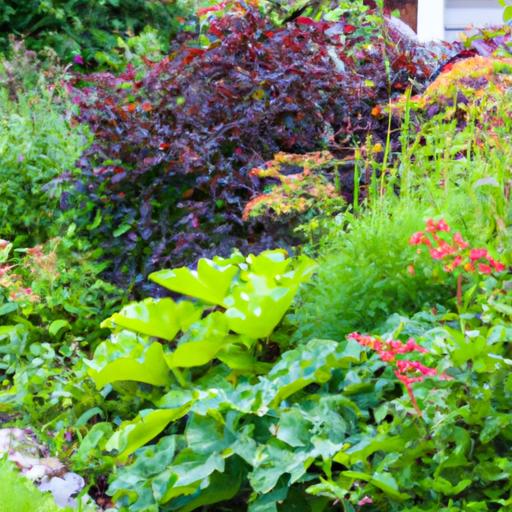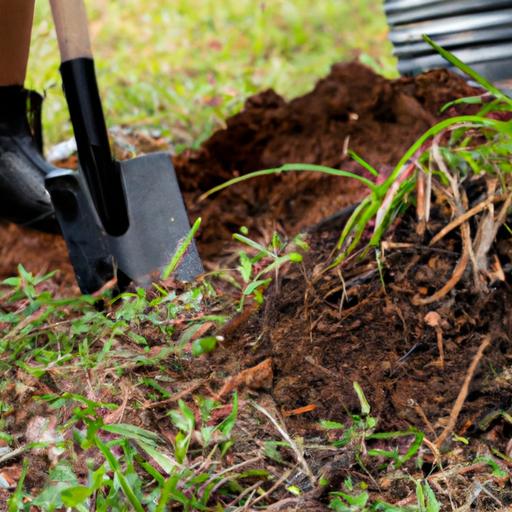Introduction
Did you know that the key to nurturing a healthy mind may lie right in your own backyard? Mental health is a vital aspect of our overall well-being, and finding effective ways to support it is crucial. In this article, we will delve into the fascinating world of gardening and explore its potential impact on mental health.
Mental health issues have become increasingly prevalent in our fast-paced, modern society. Stress, anxiety, and depression have become all too common, affecting people of all ages. It’s time to consider alternative approaches to improve our mental well-being. Gardening, an activity loved by many, has emerged as a promising solution.
The Importance of Mental Health
Before we dive into the therapeutic benefits of gardening, let’s take a moment to acknowledge the significance of mental health. Our mental well-being influences every aspect of our lives, from our relationships to our ability to handle challenges. Neglecting mental health can have detrimental effects on our overall happiness and quality of life.
Gardening’s Potential Impact on Mental Health
Now, you might be wondering, how can something as simple as gardening positively impact our mental health? The answer lies in the deep connection between humans and nature. Gardening provides an opportunity to reconnect with the natural world and find solace amidst the chaos of daily life.
Research has shown that gardening has profound psychological benefits. It serves as a powerful stress reliever, offering a sense of tranquility and relaxation. When you immerse yourself in the act of caring for plants, you can temporarily escape the pressures of the outside world.
Furthermore, gardening can boost self-esteem and provide a sense of accomplishment. Witnessing the growth and nurturing of plants can instill a profound sense of pride and satisfaction. This can be especially beneficial for individuals struggling with low self-esteem or feelings of inadequacy.
Moreover, gardening has been found to improve mood and reduce symptoms of depression. The act of tending to plants releases endorphins, the “feel-good” hormones that uplift our spirits. It’s almost like having a natural antidepressant right in your own backyard!
Intrigued? Join me in the next section as we explore the concept of therapeutic gardening and how it can be utilized as a powerful tool for mental health improvement.
Understanding Mental Health
Definition and Significance of Mental Health
Mental health encompasses our emotional, psychological, and social well-being. It affects how we think, feel, and act, influencing our ability to handle stress, make decisions, and maintain healthy relationships. Just like physical health, mental health is crucial for overall well-being and should be given utmost attention.
Common Mental Health Issues
Mental health issues come in various forms and affect individuals differently. Conditions like anxiety disorders, depression, bipolar disorder, and post-traumatic stress disorder (PTSD) are prevalent worldwide. These conditions can manifest in different ways, impacting daily functioning, relationships, and overall quality of life.
Importance of Addressing Mental Health Concerns
Acknowledging and addressing mental health concerns is crucial for several reasons. Firstly, untreated mental health issues can worsen over time, leading to more severe symptoms and potential long-term consequences. Secondly, poor mental health can hinder personal and professional growth, impacting productivity and overall life satisfaction.
By understanding and addressing mental health concerns, individuals can take proactive steps towards self-care and seek appropriate support. This is where gardening, as we explored in the previous section, can play a significant role. It’s time to embrace the therapeutic potential of gardening and its positive impact on mental well-being. Join me in the next section as we dive deeper into the connection between gardening and mental health.
The Connection Between Gardening and Mental Health
Research on Gardening’s Impact on Mental Health
Numerous studies have delved into the fascinating relationship between gardening and mental health, shedding light on its profound impact. Researchers have found compelling evidence that engaging in gardening activities can significantly improve our psychological well-being.
For instance, a study published in the Journal of Health Psychology revealed that gardening can effectively reduce stress levels. Participants who spent time gardening experienced a decrease in cortisol, the hormone associated with stress. This suggests that immersing oneself in gardening can serve as a natural antidote to the pressures of daily life.
Psychological Benefits of Gardening
Gardening offers a wide array of psychological benefits that go beyond stress reduction. Let’s explore some of these benefits in detail:
1. Stress Reduction and Relaxation
When we engage with nature, our bodies and minds naturally relaThe act of gardening allows us to escape the hustle and bustle of our busy lives and find solace in the serenity of our green spaces. The rhythmic motions of tilling the soil, planting seeds, and tending to plants create a tranquil environment that calms our racing thoughts.
2. Increased Self-esteem and Sense of Achievement
Watching a seed transform into a flourishing plant can be incredibly rewarding. Gardening provides a tangible and visible sense of achievement, boosting our self-esteem and confidence. Whether it’s the first sprout breaking through the soil or the vibrant petals of a blooming flower, these small victories instill a sense of pride and accomplishment.
3. Enhanced Mood and Reduced Symptoms of Depression
Gardening has been shown to have a positive impact on our mood and mental well-being. The act of nurturing plants releases endorphins, which elevate our mood and create a sense of happiness and contentment. In fact, a study published in the Journal of Physiological Anthropology found that gardening can significantly reduce symptoms of depression, providing a natural and accessible method of improving mental health.
How Gardening Promotes Mindfulness and Fosters a Sense of Purpose
Gardening encourages us to be fully present in the moment, promoting mindfulness. As we immerse ourselves in the tasks at hand, such as pruning, watering, or weeding, we become attuned to the sights, sounds, and sensations of the garden. This mindfulness practice helps quiet the mind, reduce anxiety, and enhance overall well-being.
Moreover, gardening fosters a sense of purpose. Caring for and nurturing living plants instills a feeling of responsibility and connection to the natural world. It provides a sense of meaning and fulfillment as we witness the positive impact of our efforts on the growth and vitality of our beloved green companions.
In the next section, we will explore the concept of therapeutic gardening and how it can be utilized as a powerful tool for mental health improvement.
Gardening as a Therapeutic Activity
Gardening is not just a hobby; it can be a therapeutic activity that nourishes both the body and the mind. Let’s explore the concept of therapeutic gardening and how it can play a significant role in improving mental health.
A. Introduction to Therapeutic Gardening
Therapeutic gardening is a structured approach that harnesses the healing power of nature to promote well-being. It involves engaging in gardening activities with specific goals to enhance physical, emotional, and mental health. This intentional form of gardening goes beyond mere enjoyment and incorporates techniques tailored to address individual needs.
B. Horticultural Therapy and its Benefits for Mental Health
Horticultural therapy, a branch of therapeutic gardening, utilizes plants and gardening activities as tools for therapeutic intervention. It has been recognized for its positive impact on mental health, offering a range of benefits for individuals facing various challenges.
1. Examples of Horticultural Therapy Programs
Across the globe, numerous horticultural therapy programs have emerged, catering to different populations. For instance, some programs focus on supporting individuals with mental health disorders, while others target veterans, seniors, or individuals with disabilities. These programs provide structured activities and expert guidance, creating a safe and nurturing environment for participants to heal and grow.
2. Gardening as a Form of Self-Care and Coping Mechanism
In addition to formal therapy programs, gardening can serve as a form of self-care and a valuable coping mechanism. Engaging in gardening activities allows individuals to channel their emotions, find solace, and regain a sense of control over their lives. Whether it’s tending to plants, creating a beautiful garden space, or simply enjoying the therapeutic benefits of being in nature, gardening can provide a much-needed respite from the challenges of daily life.
By incorporating therapeutic gardening into our lives, we can unlock its potential to support mental well-being. Stay with me as we move forward to the practical tips and suggestions on how to harness the power of gardening to improve mental health.
Practical Tips and Suggestions for Gardening to Improve Mental Health
Getting Started with Gardening
If you’re new to gardening, getting started may seem a bit overwhelming. But fear not! Here are some simple steps to kick-start your gardening journey. First, assess the available space you have. Whether you have a spacious backyard or just a small balcony, there are gardening options for everyone. Consider factors like sunlight exposure, soil quality, and accessibility.
Next, gather the essential tools and supplies. These may include gardening gloves, a trowel, watering can, and pots or planters. Don’t forget to grab some quality soil and seeds or young plants to begin with. Start small by choosing a few plants that are easy to care for, such as herbs or resilient flowers.
Choosing the Right Plants and Gardening Activities
When it comes to gardening for mental health, the choice of plants and activities can make a significant difference. Opt for plants that resonate with you. Do you enjoy vibrant flowers, fragrant herbs, or lush greenery? Select plants that bring you joy and align with your preferences.
Engage in gardening activities that promote mindfulness and relaxation. Take time to observe the growth of your plants, noticing every detail and appreciating the beauty of nature. Engaging your senses by touching the soil, smelling the flowers, and listening to the sounds of birds can enhance the therapeutic experience.
Creating a Therapeutic Garden Space
Designing a garden space specifically for therapeutic purposes can amplify its mental health benefits. Consider incorporating elements that invoke a sense of peace and tranquility. Add comfortable seating where you can relax and unwind amidst the lush surroundings. Incorporate water features like a small fountain or bird bath to create a soothing ambiance.
Furthermore, include plants with calming scents like lavender or chamomile to enhance relaxation. Create visual interest by incorporating a variety of textures and colors. Remember, your garden should be a personal sanctuary, a place where you can escape the stress of everyday life.
Incorporating Gardening into Daily Routines
To truly reap the mental health benefits of gardening, it’s important to integrate it into your daily routine. Set aside dedicated time each day or week for gardening activities. Treat it as a form of self-care, a time to nurture not only your plants but also your own well-being.
Consider establishing a routine that includes tasks like watering, pruning, and admiring your plants. You can even incorporate mindfulness exercises, such as deep breathing or meditation, while tending to your garden. By making gardening a regular part of your life, you’ll experience its therapeutic effects on a consistent basis.
Stay tuned as we reach the conclusion of our exploration into the symbiotic relationship between gardening and mental health.
Conclusion
In conclusion, the therapeutic power of gardening on mental health cannot be underestimated. As we navigate the challenges of our modern lives, taking the time to connect with nature through gardening can offer a multitude of benefits for our well-being.
By engaging in gardening activities, we can experience a sense of peace and tranquility, allowing stress to melt away. The act of nurturing plants and witnessing their growth can boost our self-esteem and provide a much-needed sense of accomplishment. Moreover, gardening has the potential to alleviate symptoms of depression and improve overall mood.
Therapeutic gardening programs have recognized the immense benefits of this activity and have incorporated it into their treatment plans. Whether it’s horticultural therapy for individuals with mental health conditions or simply engaging in gardening as a form of self-care, the positive impact on mental health is undeniable.
So, why not give gardening a try? Start small with a few potted plants or herbs on your windowsill, or delve into the world of gardening with a backyard oasis. Incorporate gardening into your daily routine and witness the transformation it can have on your mental well-being.
Remember, taking care of our mental health is just as important as taking care of our physical health. By embracing the therapeutic power of gardening, we can cultivate not only beautiful gardens but also a sense of peace, joy, and overall mental well-being.
Let the magic of gardening nurture your soul and watch as your mental health flourishes. Start digging into the world of gardening today, and reap the bountiful benefits it has to offer.
